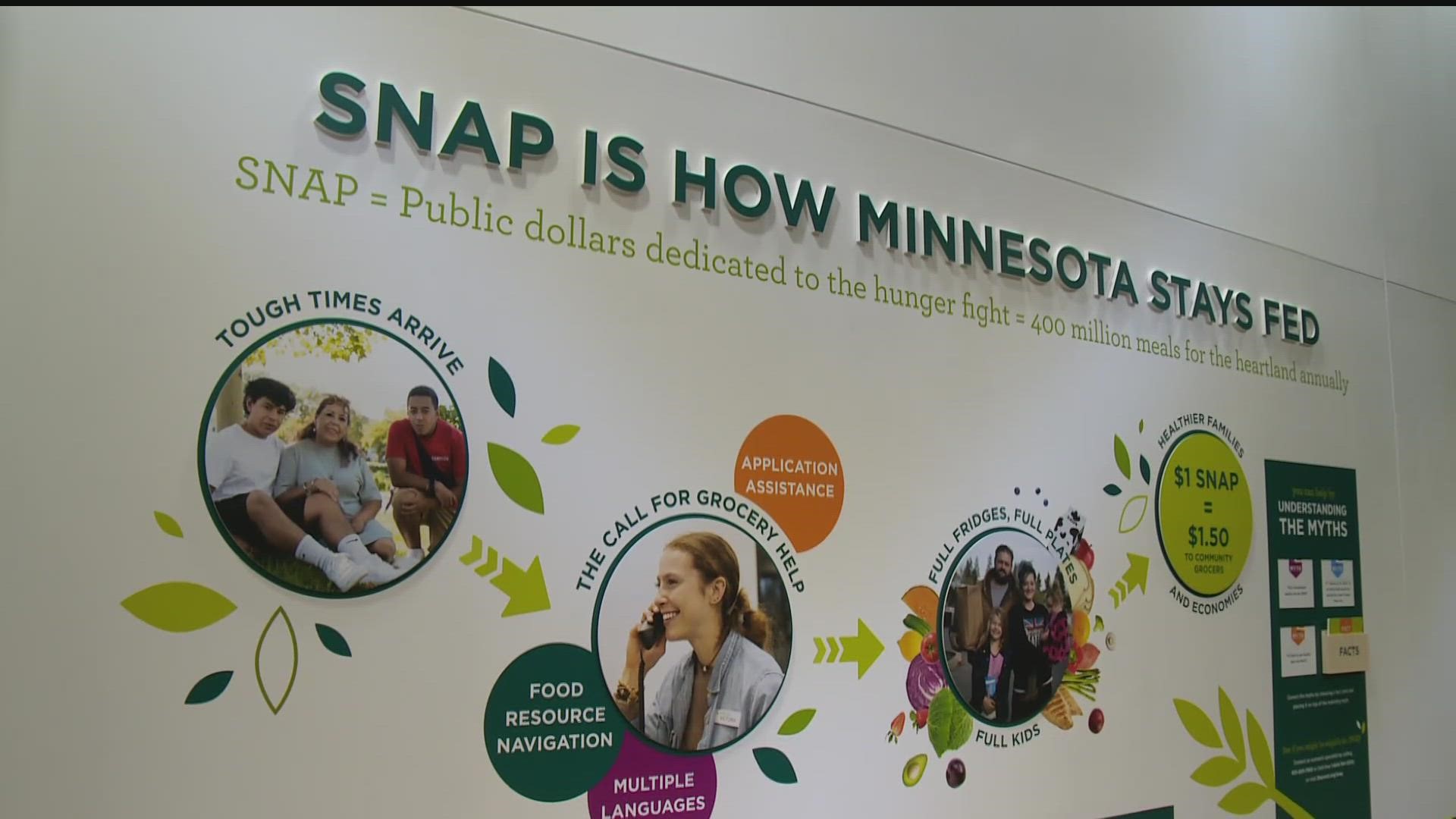BROOKLYN PARK, Minn. — Thousands of families are preparing for a hit to their monthly food budget. Emergency SNAP (E-SNAP) benefits, that were put in place during the pandemic, are coming to an end next month.
One month into the pandemic, the federal government started giving the extra money to households already receiving SNAP, a nutrition assistance program.
For some, it meant upwards of another nearly $300.
But without it, food shelves are bracing for more visits on top of an already record setting year.
Second Harvest Heartland is one of the state's nearly 400 food banks, that last year, its CEO said saw 2 million more visits compared to 2021.
"It's horrifying and sobering," said Second Harvest Heartland CEO Allison O'Toole. "It means we, this team, needs to stay in high gear."
On top of the E-SNAP benefits ending, there's inflation and sky-high grocery prices only adding to the need, said O'Toole.
"They are having trouble making ends meet right now and at a time when prices are really high, this cut comes at a really bad time for Minnesota families," O'Toole said.
For nearly three years now, the E-SNAP program increased a household's benefits to its maximum amount, meaning a senior citizen who qualified for $23, could instead get about $280. But those benefits return to normal by April.
"When you have that kind of dramatic of a decrease, it's going to be a shock to people," said Hunger Solutions Executive Director Colleen Moriarty, who works with government and community agencies to find long-term solutions to hunger.
"Feeding people works," said Moriarty. "It's not giving people cash, it's giving people food and that's what gives them stability."
She had a hand in Senator Erin Maye Quade's bill that passed through the Minnesota Senate Monday afternoon. It will provide $5 million in emergency funding to food shelves throughout the state in a matter of months.
The House unanimously voted in favor of it earlier this month and will now move to Governor Walz’s desk to be signed into law.
"Food shelves are dependent on the funds from the state and other sources to get the food they need to distribute," said Moriarty about the money that she admits will help her sleep at night. "None of the food is free."
Moriarty says she's also working on fully funding E-SNAP again as part of this year's Farm Bill.
O'Toole, meanwhile, is a supporter of universal school meals because both women say there are few good, sustainable responses left to meet the food scarcity demand.
Watch more local news:
Watch the latest local news from the Twin Cities in our YouTube playlist:

